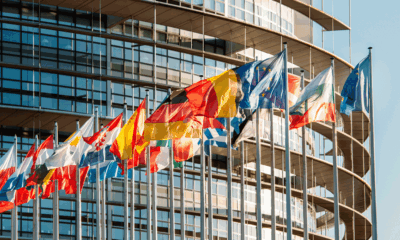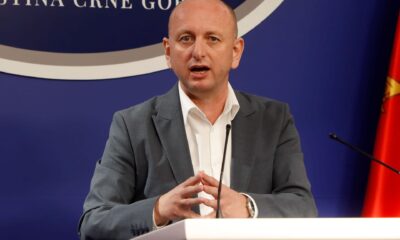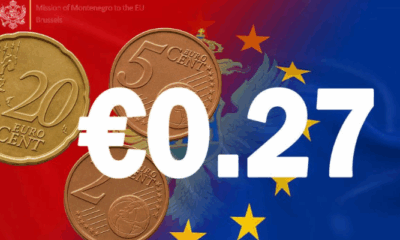Lifestyle
Vuković Reports Decline in Political Support and Growing Extremism

Political tensions in Montenegro are intensifying, according to Ivan Vuković, a representative of the Democratic Party of Socialists (DPS). In a recent post on the social media platform X, Vuković commented on a study conducted by the Centre for Democracy and Human Rights (CEDEM), indicating that the political landscape is unfolding as anticipated when the **Progressive Electoral Society** (PES) formed a coalition with the former Democratic Front (DF).
Vuković highlighted that PES has experienced a significant decrease in public support, dropping from **25.5%** to **20.3%**. This represents a **20%** loss in backing since the last elections. Concurrently, he noted a concerning rise in extreme right-wing elements, which have surged nearly **40%**, climbing from **14.7%** in 2023 to **23.5%**.
Shift in Public Sentiment
The findings reveal a troubling trend in public sentiment regarding key international alliances. Vuković pointed out that support for the **European Union** is declining, while opposition to **NATO** is increasing among the populace. This shift raises important questions about the future direction of Montenegro’s foreign policy and its alignment with Western institutions.
Despite these challenges, Vuković acknowledged a silver lining in the political landscape. He noted that the ratings for the **Democratic Montenegro** party remain stable, showing an improvement of **20%** compared to its performance in the **2023** elections. He remarked that while the party faces criticism, including severe attacks, its support base has demonstrated resilience.
Future Implications
As Montenegro navigates this complex political situation, the implications for governance and stability are significant. The decrease in support for PES and the rise of extremist factions could influence legislative processes and policy-making in the country. Vuković’s observations underscore the need for political parties to adapt to shifting public sentiments and to address the growing concerns regarding national and international affiliations.
The results of the CEDEM study serve as a crucial indicator of the political climate in Montenegro, reflecting broader trends that could shape the country’s future. With the political landscape evolving rapidly, stakeholders must remain vigilant and responsive to these changes.
-

 Entertainment3 months ago
Entertainment3 months agoAnn Ming Reflects on ITV’s ‘I Fought the Law’ Drama
-

 Entertainment4 months ago
Entertainment4 months agoKate Garraway Sells £2 Million Home Amid Financial Struggles
-

 Health3 months ago
Health3 months agoKatie Price Faces New Health Concerns After Cancer Symptoms Resurface
-

 Entertainment3 months ago
Entertainment3 months agoCoronation Street’s Carl Webster Faces Trouble with New Affairs
-

 Entertainment3 months ago
Entertainment3 months agoWhere is Tinder Swindler Simon Leviev? Latest Updates Revealed
-

 Entertainment4 months ago
Entertainment4 months agoMarkiplier Addresses AI Controversy During Livestream Response
-

 Science1 month ago
Science1 month agoBrian Cox Addresses Claims of Alien Probe in 3I/ATLAS Discovery
-

 World2 weeks ago
World2 weeks agoBailey Announces Heartbreaking Split from Rebecca After Reunion
-

 Health4 months ago
Health4 months agoCarol Vorderman Reflects on Health Scare and Family Support
-

 Entertainment4 months ago
Entertainment4 months agoKim Cattrall Posts Cryptic Message After HBO’s Sequel Cancellation
-

 Entertainment3 months ago
Entertainment3 months agoOlivia Attwood Opens Up About Fallout with Former Best Friend
-

 Entertainment2 weeks ago
Entertainment2 weeks agoCoronation Street Fans React as Todd Faces Heartbreaking Choice





















